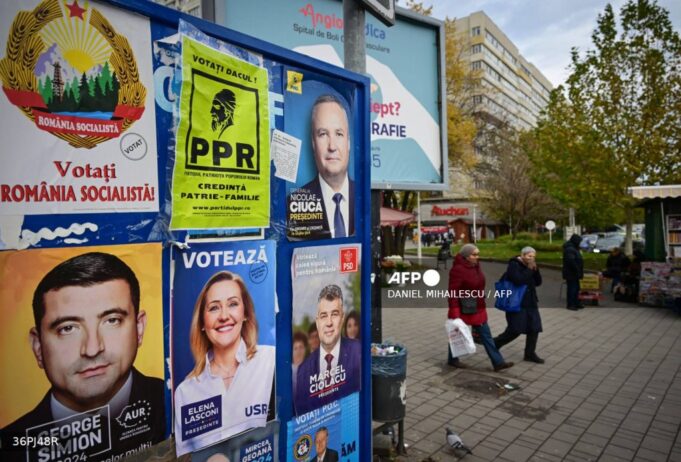Romania’s Constitutional Court has annulled the presidential election results, citing significant allegations of Russian interference in favor of the far-right candidate, Calin Georgescu, just two days before the scheduled run-off.
The court’s ruling comes after accusations of extensive social media manipulation and cyberattacks linked to Russia, which were detailed in declassified documents by Romania’s presidency earlier this week.
In a statement, the court declared the entire election process flawed due to “multiple irregularities and violations of electoral legislation” that undermined the integrity of the vote.
The court emphasized that these issues violated essential democratic principles, leading to the annulment of the election.
Romania’s pro-European Union President Klaus Iohannis, whose tenure continues until a new presidential election date is set, expressed his commitment to staying in office until a new government emerges from the recent legislative elections.
The elections were held just days before, and a new government will need to be formed to organize the next presidential vote.
Georgescu, a former high-ranking civil servant, had secured the highest vote share in the first round of the election on November 24, surprising many within the EU and NATO.
He was set to face centrist mayor Elena Lasconi in the upcoming run-off.
In response to the court’s decision, Georgescu described the annulment as a “formalized coup d’état” and an “attack on democracy,” urging Romanians to remain steadfast in their desire for change.
Lasconi, the mayor of Cluj-Napoca, also denounced the court’s ruling, calling it “illegal” and “immoral.”
The ruling has sparked outrage among some Romanians, particularly Georgescu’s supporters, who feel the decision undermines their votes.
Others, however, supported the court’s decision, fearing a return to communist-era policies under Georgescu’s leadership.
Outgoing Prime Minister Marcel Ciolacu, who lost in the first round, praised the court’s ruling, calling it “the only correct solution.”
Meanwhile, anti-corruption prosecutors have launched investigations into alleged illegal activities, including violations of electoral laws and money laundering, tied to the election’s handling.
Romanian authorities have also criticized TikTok for its alleged preferential treatment of Georgescu, though the platform has denied the accusations.
The European Commission is monitoring the situation closely, especially the role of social media in the alleged interference, while Romania’s intelligence services have warned about ongoing Russian hybrid warfare tactics, including cyberattacks aimed at influencing the political process.
The annulment of the election has heightened concerns about Romania’s political stability and the strength of its democratic institutions, with some analysts warning that it deepens the polarization within the country.
Georgescu’s rise in popularity, largely due to dissatisfaction with the government’s handling of inflation and the war in Ukraine, has fueled fears of a far-right shift in Romania’s political landscape.
Romania’s political future remains uncertain, with the far-right gaining significant traction in the recent legislative elections.
The Social Democrats, the pro-European Union party, emerged as the biggest winner in the election, but the far-right parties have made substantial gains, securing a third of the vote.
This has left Romania with a fragmented parliament, which could complicate the political landscape moving forward.

















